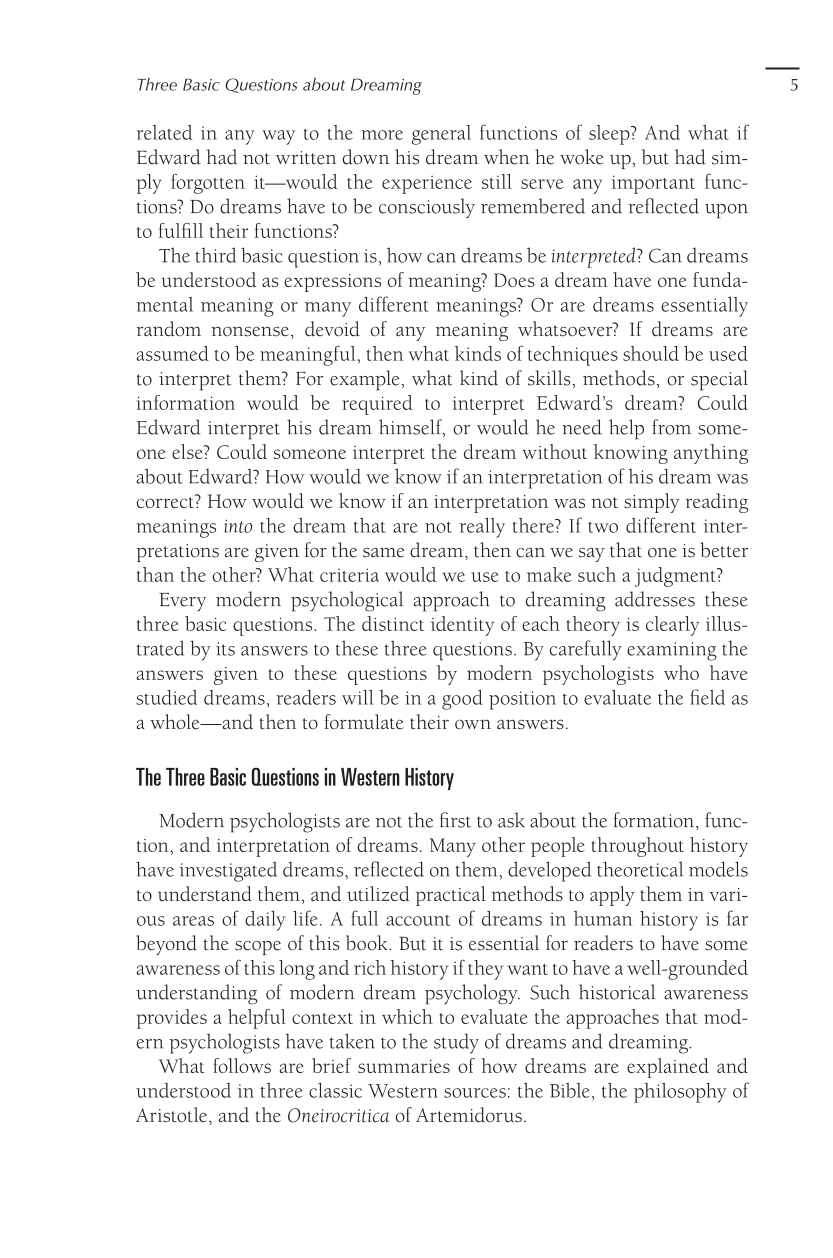Three Basic Questions about Dreaming 5
related in any way to the more general functions of sleep? And what if
Edward had not written down his dream when he woke up, but had sim-
ply forgotten it—would the experience still serve any important func-
tions? Do dreams have to be consciously remembered and reflected upon
to fulfill their functions?
The third basic question is, how can dreams be interpreted? Can dreams
be understood as expressions of meaning? Does a dream have one funda-
mental meaning or many different meanings? Or are dreams essentially
random nonsense, devoid of any meaning whatsoever? If dreams are
assumed to be meaningful, then what kinds of techniques should be used
to interpret them? For example, what kind of skills, methods, or special
information would be required to interpret Edward’s dream? Could
Edward interpret his dream himself, or would he need help from some-
one else? Could someone interpret the dream without knowing anything
about Edward? How would we know if an interpretation of his dream was
correct? How would we know if an interpretation was not simply reading
meanings into the dream that are not really there? If two different inter-
pretations are given for the same dream, then can we say that one is better
than the other? What criteria would we use to make such a judgment?
Every modern psychological approach to dreaming addresses these
three basic questions. The distinct identity of each theory is clearly illus-
trated by its answers to these three questions. By carefully examining the
answers given to these questions by modern psychologists who have
studied dreams, readers will be in a good position to evaluate the field as
a whole—and then to formulate their own answers.
The Three Basic Questions in Western History
Modern psychologists are not the first to ask about the formation, func-
tion, and interpretation of dreams. Many other people throughout history
have investigated dreams, reflected on them, developed theoretical models
to understand them, and utilized practical methods to apply them in vari-
ous areas of daily life. A full account of dreams in human history is far
beyond the scope of this book. But it is essential for readers to have some
awareness of this long and rich history if they want to have a well-grounded
understanding of modern dream psychology. Such historical awareness
provides a helpful context in which to evaluate the approaches that mod-
ern psychologists have taken to the study of dreams and dreaming.
What follows are brief summaries of how dreams are explained and
understood in three classic Western sources: the Bible, the philosophy of
Aristotle, and the Oneirocritica of Artemidorus.












































































































































































